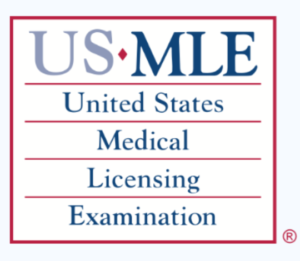Siding with experts who made in-person evaluation of medical student, court orders national board to provide test accommodations to student with learning disabilities
 A federal court in New York issued a preliminary injunction December 2 requiring the National Board of Medical Examiners to provide test accommodations to a medical student, based on the opinion of experts who evaluated the student’s learning disabilities in person.
A federal court in New York issued a preliminary injunction December 2 requiring the National Board of Medical Examiners to provide test accommodations to a medical student, based on the opinion of experts who evaluated the student’s learning disabilities in person.
Experts who evaluated the student in person are more persuasive than remote assessments, and an individual’s past use of mitigation strategies to succeed on an exam should not be used to deny accommodation, the court said.
To begin his final 40 weeks of study towards a medical degree, student Robert Sampson’s medical school required him to pass Step 1 of the United States Medical Licensing Exam early because of underperformance during the academic year. Sampson has learning disabilities in the form of severe stuttering and focus and reading issues which cause him to struggle with timed exams, for which he often received informal accommodations during his schooling.
He was not formally diagnosed with any learning disorder until 2013, at which point he was diagnosed with an unspecified learning disorder based on wide disparities between his strong verbal reasoning abilities and very weak visual and spatial reasoning. His medical school granted him accommodations, including 50% more time on exams, note-taking services, and a separate testing area.
Prior to taking the NBME exam, Sampson sought accommodations from the Board in the form of 50% additional time. After consulting an outside expert, the Board denied Sampson’s request. Sampson took the test without accommodations and failed it, and his medical school moved to expel him unless he could pass the exam at the end of his third year.
Sampson then obtained a new medical evaluation from a doctor who diagnosed him with a reading and writing impairment and attention deficit hyperactivity disorder, recommending accommodations. He applied again for accommodations on the USMLE, but the Board again denied his request.
Sampson filed suit in the federal district court for the Eastern District of New York, seeking an injunction requiring the Board to provide his requested accommodations on the Exam, arguing that the Board was violating the Americans with Disabilities Act by denying his request.
The court, evaluating Sampson’s request for a preliminary injunction, first found that he would suffer irreparable harm if he was not granted accommodations because he was likely to again fail the exam and his medical school would expel him because he would not have completed his studies within seven years as a result of the delays. If expelled, he would no longer be eligible to take the Exam, so his medical career would be over.
Next, evaluating Sampson’s claim under the ADA, the court noted the extensive history of Sampson’s learning difficulties observed by educators and medical professionals, as well as Sampson’s own generally-successful strategies to mitigate those difficulties and the accommodations he had often been afforded. Despite the doubts of the Board’s experts, Judge Joan Azrack wrote that “Sampson has provided extensive evidence that his learning disabilities and ADHD substantially limit his reading and concentration abilities compared to most people in the general population.”
For its part, the Board challenged the conclusions of the medical professionals that had concluded he was impaired, but the court eventually found Sampson’s experts more persuasive.
Among other reasons, Judge Azrack pointed to the extensive in-person evaluations that Sampson’s experts had performed, in contrast with the Board’s experts, who had never evaluated him in person. While the Board was not required to provide an in-person assessment, she noted, individualized in-person assessments are more persuasive. In addition, past accommodations provided to Sampson—in particular those provided for tests comprised of sample questions from the NBME Exam—should be given “considerable weight” in any decision over accommodations, the judge continued.
Azrack held that the board was also incorrect to use Sampson’s past success on standardized tests—made possible primarily because of his own efforts at mitigating his learning difficulties—as evidence against his need for accommodations.
“That Sampson was able to use these mitigating measures with some success does not, as NBME argues, undermine his claim that he is substantially limited in his ability to read and concentrate. Rather, his past success on stand-ardized tests and in the classroom reflects that he compensated for his impaired reading and concentration abilities through learned behavioral modifications, such as test-taking strategies, and by studying longer than his peers.”
The court, ruling that Sampson had a substantial likelihood of success on the merits of his ADA claim, granted his request for a preliminary injunction, ordering the Board to provide double testing time, a separate room, and extended breaks.

